Neurodiversity is the idea that there is no single “right” way for a brain to function. Instead, neurological differences—such as autism, ADHD, dyslexia, dyspraxia, Tourette’s, and others—are recognised as natural variations of the human experience. At the same time, people who are neurodivergent often face unique challenges that can affect their mental health.
Research shows that individuals who are neurodivergent are more likely to experience anxiety, depression, and suicidal thoughts. Factors such as social exclusion, bullying, workplace discrimination, difficulty accessing appropriate mental health support, and the pressure to mask or “fit in” can all contribute to emotional distress.
Why Suicide Prevention Must Include Neurodivergent Voices
Suicide prevention strategies must take into account the lived experiences of neurodivergent people. This means:
-
Creating inclusive services that understand and accommodate different communication styles, sensory needs, and support preferences.
-
Training professionals to recognise how mental health conditions may present differently in neurodivergent individuals.
-
Listening to neurodivergent people and involving them in shaping the policies and services that affect them.
-
Safe spaces—in schools, workplaces, and communities—where people can be themselves without judgment or pressure to mask their identity.
What You Can Do
Whether you’re an employer, educator, friend, or family member, you can make a difference by learning more about neurodiversity and becoming an ally:
-
Use inclusive language and avoid assumptions.
-
Promote mental health resources that are tailored to neurodivergent needs.
-
Advocate for environments that support flexibility, accessibility, and acceptance.
-
Reach out. If you think someone is struggling, let them know they’re not alone and help them find support.
Neurodiversity Suicide Prevention Training

